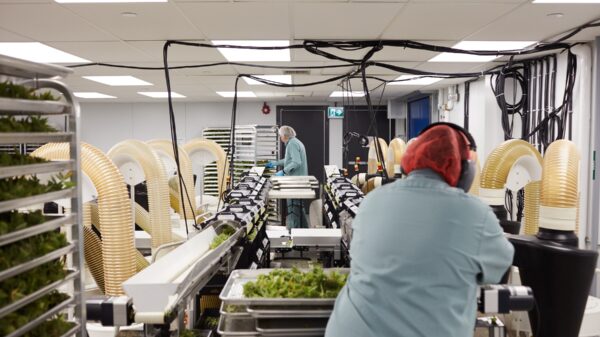Marking the 50th anniversary of a report by the Shafer Commission — which famously recommended cannabis not be criminalized, despite being tasked by former president Richard Nixon to do the opposite — a prominent advocacy organization is calling out U.S. states that have yet to reform their drug laws.
On Tuesday, the Marijuana Policy Project released “Behind the Times: The 19 States Where a Joint Can Still Land You in Jail” as part of its continued push to end prohibition, just like the Shafer report did so many years ago.
But today, continued criminalization isn’t even supported by public opinion. The MPP notes Gallup polls indicating 68 per cent of Americans support cannabis legalization, yet the federal government still considers simple possession a criminal offence.
The MPP’s report draws attention to states that similarly haven’t even decriminalized simple possession, examining continued racially disparate arrest rates and other consequences of draconian drug law.
“Not only are the cannabis policies in these states outdated, but they are also unjust and inhumane,” reads the report. “In some of these states, penalties are shockingly harsh.”
Read more: Cannabis decriminalization lowers racial disparity in arrests: study
Read more: Biden administration has options to legalize weed: congressional report
For example, in Alabama a first offence for possession any amount of pot for personal use carries a maximum penalty of up to a year in jail. A repeat offence carriers a mandatory minimum sentence of one year and one day behind bars.
The MPP notes that in every state yet to decriminalize cannabis, Black people are more likely to be arrested for possession than their white peers, despite similar rates of use.
In some states, that disparity is extremely high. In Kentucky, Black people are over 9 times more likely to be arrested for cannabis possession than white people.

Kentucky is one of a number of American states where cannabis possession is illegal, despite public support for legalization. Others include Alabama, Florida and Georgia. Chart via MPP report
Many imprisoned for such offences experience lasting effects from their incarceration, including negative mental health outcomes, disconnection from family, loss of autonomy and trauma from witnessing or experiencing violence. Some have even died while in prison for cannabis possession.
On the other hand, in states that have reformed their laws to decriminalize simple possession, the MPP says the laws are working well.
Thousands of people are saved from involvement in the criminal justice system and the harsh collateral consequences of a criminal conviction, while significant police resources are freed up to focus on serious crimes.
“Keeping marijuana illegal doesn’t decrease crime rates; it just introduces new people to the revolving door of ‘justice,'” says retired Lt. Diane Goldstein, executive director of the Law Enforcement Action Partnership.
“Those things impact the entire community. We need to be prioritizing public safety. Decriminalizing marijuana allows everyone involved to do that.”
Read more: Virginia advances bill to allow recreational cannabis sales this year
Read more: Maryland voters will decide on cannabis legalization in November ballot
Data analyzed by the Stanford Open Policing Project show that in Colorado and Washington — the first states to legalize adult use — traffic searches, which are disproportionately made on cars with Black and Latino drivers, have fell by about half. Meanwhile, experts at Washington State University found that police solved significantly more violent and property crimes in years following legalization.
Nearly half of Americans say they’ve tried cannabis and almost 7 per cent (49.6 million) said they consumed it last year, according to Gallup. At the federal level, repeat convictions for any possession carry minimum jail times and fines of up to US$5,000.
While the White House’s guidance is for law enforcement to act according to local state law, likely thousands are still charged for simple possession under federal law each year (over 2,000 in 2013, the last year with accessible data).
The MPP references cases where legal residents have been declared inadmissible for simply admitting to using cannabis where it’s legal.
It’s long past time for America and its less-progressive states to start taking a more just, commonsense and fiscally responsible approach to cannabis policy, the advocacy group says.
“Short of legalization, states should stop needlessly ensnaring thousands of their residents in the criminal justice system each year,” the report continues.
“Now is the time for the remaining 19 states that still criminalize to reclassify possession of one ounce or less of cannabis as a civil infraction,
replacing the criminal offense with a small civil fine and wiping away the criminal records of offenders convicted under the old, overly harsh laws.”
nick@mugglehead.com














